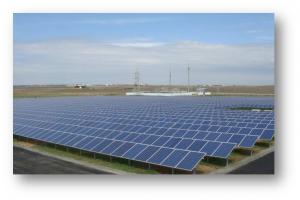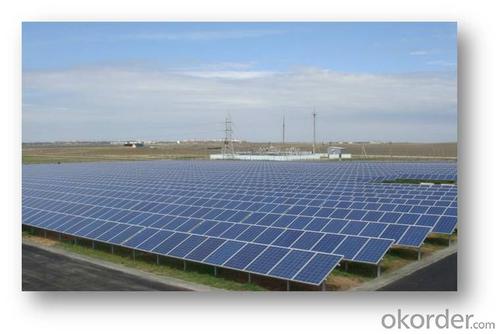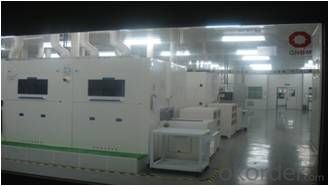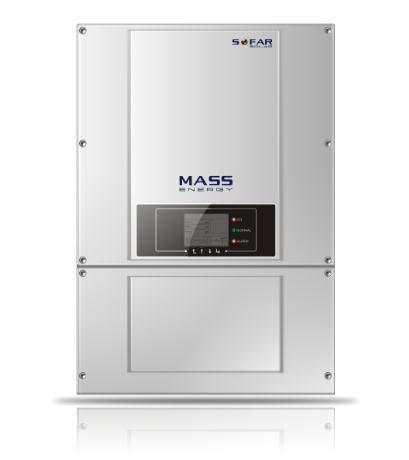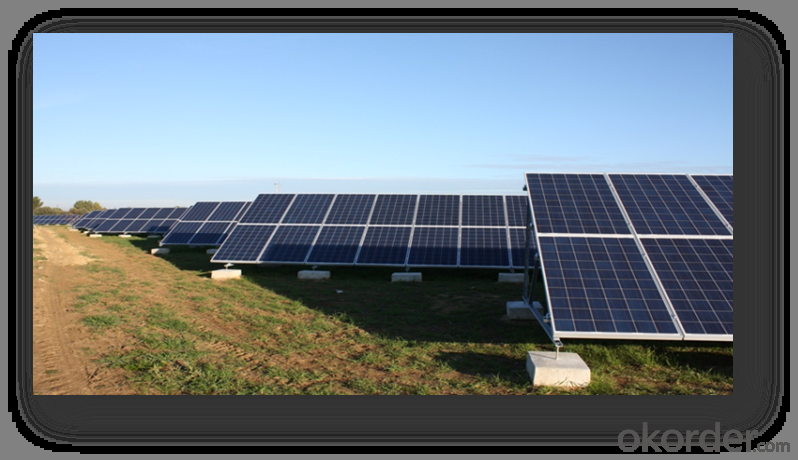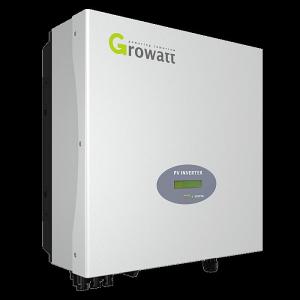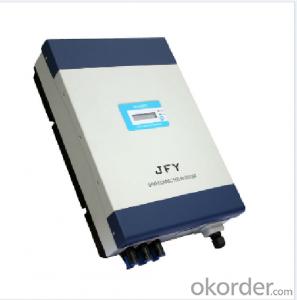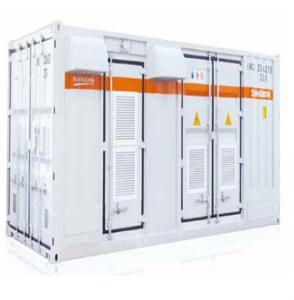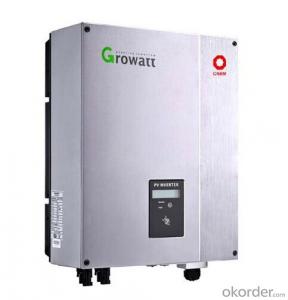Small Solar Inverter - Grid-Tied Solar PV Inverter 15000TL Intelligent Grid Management
- Loading Port:
- Shanghai
- Payment Terms:
- TT or LC
- Min Order Qty:
- 10 unit
- Supply Capability:
- 10000 unit/month
OKorder Service Pledge
OKorder Financial Service
You Might Also Like
High-yield
·Max98.2% efficiency
·Realtime precise MPPT algorithm for max harvest
·Wideinput voltage operation range from 250V to 960V
Allin one. Flexible and economical system solution
·DCswitch(option)
·DCsurge protection device(option)
·ACsurge protection device(option)
·Built-inPV Combiner(option)
·Powermanagement unit
·Optimumselection for big PV plants, commercial buildings...
Lowmaintenance cost
·Detachablecover for easy installation
·Rust-freealuminum covers
·Flexiblemonitoring solution
·Multifunction relay can be configured to show various inverter information
Intelligentgrid management
·LVRTsupport
·Reactivepower adjustable
·Selfpower reducer whenover frequency
·Remoteactive/reactive power limit control
Technical Data | SOFAR 10000TL | SOFAR 15000TL | SOFAR 17000TL | SOFAR 20000TL |
Input (DC) | ||||
Max. Input Power | 10400W | 15600W | 17700W | 20800W |
Max. DC power for single MPPT | 6750(450V-850V) | 10500(500V-850V) | 10500(500V-850V) | 12000(500V-850V) |
Number of independent MPPT | 2 | |||
Number of DC inputs | 2 for each MPPT | 3 for each MPPT | ||
Max. Input Voltage | 1000V | |||
Start-up input voltage | 350V(+/-1V) | |||
Rated input voltage | 600V | |||
Operating input voltage range | 250V-960V | |||
MPPT voltage range | 350V-850V | 370V-850V | 420V-850V | 430V-850V |
Max. Input current per MPPT | 15A/15A | 21A/21A | 21A/21A | 24A/24A |
Input short circuit current per MPPT | 20A | 27A | 27A | 30A |
Output(AC) | ||||
Rated power(@230V,50Hz) | 10000VA | 15000VA | 17000VA | 20000VA |
Max. AC power | 10000VA | 15000VA | 17000VA | 20000VA |
Nominal AC voltage | 3/N/PE, 220/380 3/N/PE, 230/400 3/N/03, 240/415 | |||
Nominal AC voltage range | 184V-276V | |||
Grid frequency range | 50Hz, +/-5Hz | |||
Active power adjustable range | 0~100% | |||
Max. Output Current | 15A | 22A | 25A | 29A |
THDi | <3% | |||
Power Factor | 1(Adjustable +/-0.8) | |||
Performance | ||||
Max efficiency | 98.2% | |||
Weighted eff.(EU/CEC) | 97.6%/97.8% | 97.9%/98% | 97.9%/98% | 98%/98.1% |
Self-consumption at night | <1W | |||
Feed-in start power | 45W | |||
MPPT efficiency | >99.5% | |||
Protection | ||||
DC reverse polarity protection | Yes | |||
DC switch | Optional | |||
Protection class/overvoltage category | I/III | |||
Input/output SPD(II) | Optional | |||
Safety Protection | Anti-islanding, RCMU, Ground fault monitoring | |||
Certification | CE, CGC, AS4777, AS3100, VDE 4105, C10-C11, G59(more available on request) | |||
Communication | ||||
Power management unit | According to certification and request | |||
Standard Communication Mode | RS485, Wifi(optional), Multi-function relay | |||
Operation Data Storage | 25 years | |||
General data | ||||
Ambient temperature range | -25℃ ~ +60℃ | |||
Topology | Transformerless | |||
Degree of protection | IP65 | |||
Allowable relative humidity range | 0 ~ 95% no condensing | |||
Max. Operating Altitude | 2000m | |||
Noise | <45dB | |||
Weight | 45kg | 45kg | 48kg | 48kg |
Cooling | Nature | Fan | Fan | Fan |
Dimension | 707×492×240mm | |||
Warranty | 5 years | |||
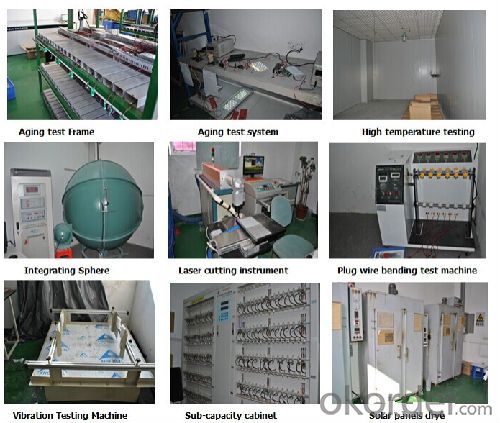
How fast will my system respond to a power outage?
Our solar inverters typically transfer to battery power in less than 16 milliseconds (less than 1/50th of a second).
What kind of batteries do the systems include?
Our solar backup electric systems use special high-quality electric storage batteries.
How do I install my system?
A solar backup inverter is connected to a home electric system , we will supply detailed installation manual and videos for our customers .
- Q: Can a solar inverter be used with a solar-powered air purification system?
- Yes, a solar inverter can be used with a solar-powered air purification system. A solar inverter converts the direct current (DC) generated by solar panels into usable alternating current (AC) electricity, which can power various appliances or devices, including air purification systems. By connecting a solar inverter to a solar-powered air purification system, it can efficiently operate using renewable energy from the sun.
- Q: Can a solar inverter be installed in a residential area?
- Yes, a solar inverter can be installed in a residential area. In fact, residential areas are common locations for solar installations, including the installation of solar inverters. These inverters are responsible for converting the direct current (DC) electricity generated by solar panels into alternating current (AC) electricity that can be used by household appliances and fed back into the electrical grid. Installing a solar inverter in a residential area allows homeowners to harness the power of solar energy and reduce their reliance on traditional electricity sources.
- Q: Can a solar inverter be used with different types of solar tracking systems?
- Yes, a solar inverter can be used with different types of solar tracking systems. Solar inverters are designed to convert the direct current (DC) produced by solar panels into alternating current (AC) for use in homes or businesses. They are compatible with various solar tracking systems, including single-axis and dual-axis trackers, as long as the voltage and power ratings of the inverter match the requirements of the specific tracking system.
- Q: Can a solar inverter be used in areas with high levels of lightning activity?
- Yes, a solar inverter can be used in areas with high levels of lightning activity. However, it is important to ensure that the inverter is designed to withstand lightning strikes and has appropriate surge protection measures in place to prevent damage. Additionally, proper grounding and installation by a qualified professional are crucial to mitigate any potential risks associated with lightning strikes.
- Q: Can a solar inverter be used for three-phase power systems?
- Yes, a solar inverter can be used for three-phase power systems. There are specific three-phase solar inverters available in the market that are designed to convert DC power from solar panels into AC power for three-phase electrical grids. These inverters are capable of synchronizing with the grid and distributing power across all three phases efficiently.
- Q: Can a solar inverter be used with a solar-powered security camera system?
- Yes, a solar inverter can be used with a solar-powered security camera system. A solar inverter is responsible for converting the direct current (DC) produced by the solar panels into alternating current (AC) that can be used to power electrical devices. In the case of a solar-powered security camera system, the solar panels generate DC power, which is then converted by the solar inverter into AC power that can be used to operate the cameras and other components of the system.
- Q: How does a solar inverter handle reactive power compensation?
- A solar inverter handles reactive power compensation by using advanced control algorithms and capacitors. It actively measures the reactive power in the system and generates the necessary reactive power to balance it out. This helps stabilize the voltage and ensures efficient energy transfer between the solar panels and the grid.
- Q: What is the maximum number of solar panels that a solar inverter can support?
- The maximum number of solar panels that a solar inverter can support depends on the specific model and its capacity. However, most solar inverters are designed to support a certain capacity or power rating, rather than a specific number of panels. The capacity of the solar inverter, measured in kilowatts (kW) or megawatts (MW), determines the maximum power output it can handle. The number of panels that can be connected to the inverter depends on the power rating of each panel. So, it is best to consult the manufacturer's specifications or seek professional advice to determine the maximum number of panels that can be supported by a specific solar inverter.
- Q: Can a solar inverter be used with a remote control system?
- Yes, a solar inverter can be used with a remote control system. Many modern solar inverters are equipped with built-in communication capabilities, such as Wi-Fi or Ethernet connectivity, which allows them to be remotely monitored and controlled. This enables users to adjust settings, monitor energy production, and receive real-time alerts or notifications through a remote control system.
- Q: How is the size of a solar inverter determined?
- The size of a solar inverter is typically determined by the total capacity of the solar panels it needs to handle. The inverter should have a capacity slightly higher than the total wattage of the solar panels to ensure efficient conversion of the DC power produced by the panels into usable AC power for household or grid consumption.
Send your message to us
Small Solar Inverter - Grid-Tied Solar PV Inverter 15000TL Intelligent Grid Management
- Loading Port:
- Shanghai
- Payment Terms:
- TT or LC
- Min Order Qty:
- 10 unit
- Supply Capability:
- 10000 unit/month
OKorder Service Pledge
OKorder Financial Service
Similar products
Hot products
Hot Searches
Related keywords
